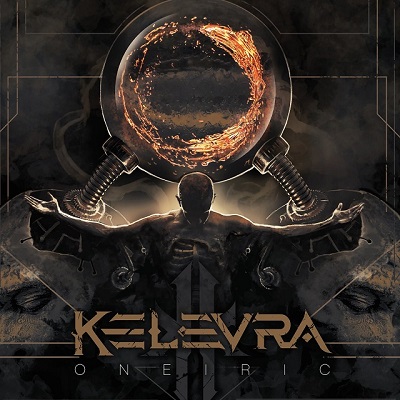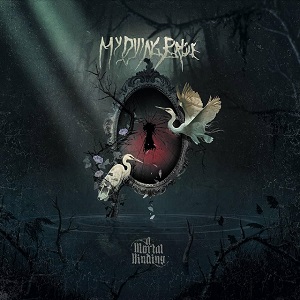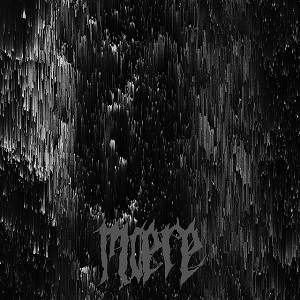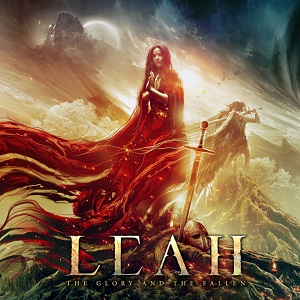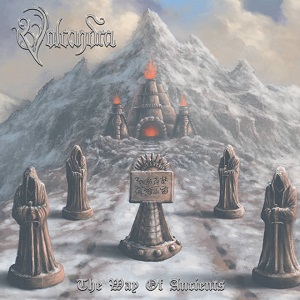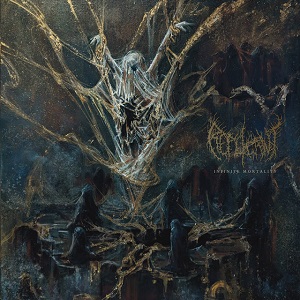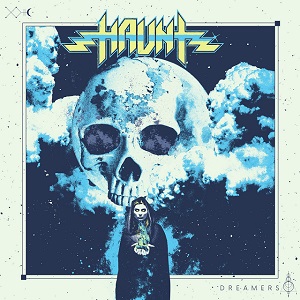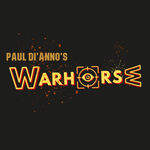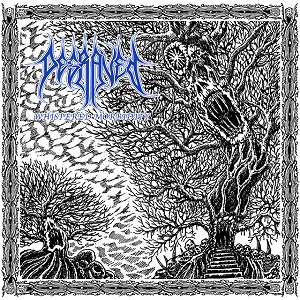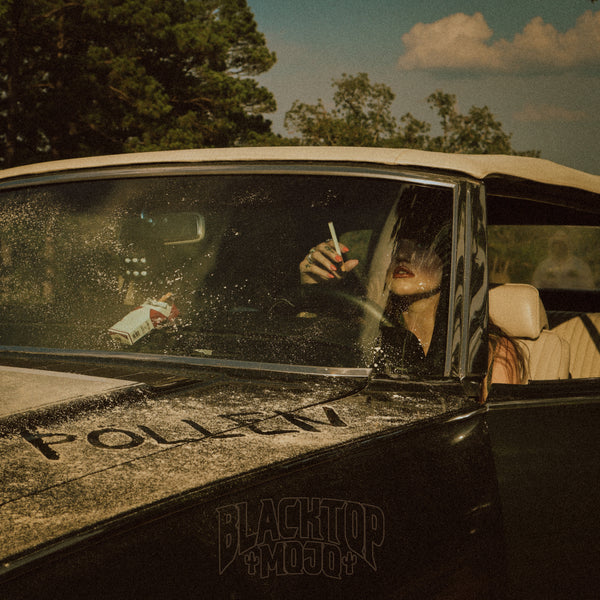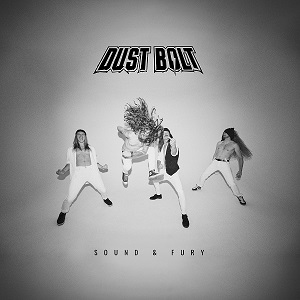MEGADETH - “Im An Advocate For The Heavy Stuff”
July 23, 2013, 10 years ago
They’ve made a raft of considerably heavy and quite under-rated records very quickly as of late, and Canuck drummer Shawn Drover has been there for most of them, specifically the last four. The band is MEGADETH and the new record is Super Collider, an album that finds Mega-Dave brave to stretch out again, although cognizant of at least some parameters. The result is a richly varied album, embodied in the relentlessly catchy title track, of course.
“You know what? I know,” chuckles Drover, probably not believing me when I tell him it’s may favourite track on the album, due mostly to Dave’s singing and hooky vocal melody on it, one that marries LED ZEPPELIN’s ‘In The Light’ to the Sesame Street theme. “You’re a hardcore metal fan just like I am. Some people aren’t going to get it, and they’re not going to like it. I knew it as soon as we wrote the song. This is one of those songs that Dave had written already, that he had constructed, towards the end of the Thirteen tour. It was one of those songs that was a 90% written thing. And it’s obviously a simple song, somewhat like ‘Symphony Of Destruction’, very to the point, verse, chorus, bridge, solo and what have you. So it’s a simple song, and it’s not as heavy as ‘The Conjuring’. I mean, that’s a fact. And that’s going to piss some people off. And to me, I don’t care, that doesn’t bug me, you know what I mean? I grew up listening to VAN HALEN, SUPERTRAMP, FLEETWOOD MAC, BLACK SABBATH, DEEP PURPLE. To me, good music is good music. If it’s good, I like it. I think it’s a really good hard rock tune, end of story.”
Let’s not get carried away. It’s not like it’s like a Risk song or anything. And of course, most of the rest of the record is much more brutally appointed anyway.
“It’s heavier than ‘A Tout Le Monde’, and that’s a live staple. That was a hit for the band back when they wrote that song. But I’m sure, back then, some hardcore fans probably bitched about that song too. But it’s one of the songs that goes best over in our set, you know what I mean? I get it. I get when certain... probably some younger fans and stuff... they want everything to sound as heavy as Killing Is My Business. It’s just never been like that. No record has been as heavy as Killing Is My Business. That’s the most violent record we have. And I get it, I’m an advocate for the heavy stuff. I’m that guy—the heavier the better as far as I’m concerned. But Dave likes to stretch out sometimes and do different things. And he’s got the balls to do it. I’m not saying that it’s right or wrong, but I think it’s really cool that he isn’t scared to try something a little bit different sometimes.”Shawn’s definitely a rocker, as evidenced by his contribution of ‘Head Crusher’ to Endgame, as well as ‘Built For War’ to Super Collider.
“That’s just a matter of Dave saying, ‘Hey, you got any ideas?’ ‘Yeah, I got some ideas.’ ‘Well let’s hear ‘em; what have you got?’ So I’d record my ideas and stuff, and he liked a couple of things that I submitted. And he said, let’s focus on this one riff, and it just so happened that Chris... Chris and David, of course had some ideas as well, and one of the riffs that Chris had was the opening part of ‘Built For War’, before it jumps into the verse. And it fit really well with what I was doing, and then Dave—this is pretty much close to the end of the day—he said, ‘Look, if you have any more ideas, I wanna do this kind of breakdown in the middle of the song. See if you can come up with something.’ And I had an acoustic guitar, and I came up with this thing that night, and that was submitted into the song the next day. And Dave actually contributed one musical part to the song; he had a part that was kind of missing from the song, which he wrote. So that was a three-way collaboration. That was the first time that happened in the band, so that was exciting. And it came together literally within 24 hours of Dave hearing the idea. Constructing the song to me going in to record the drums was a process of about 24 hours.”Asked to contrast Super Collider with the other three albums Drover’s help pound into shape from the drum riser, he figures, “Well, if you want to go by heavy, I would think, in my opinion, Endgame is the heaviest of the four. In my opinion. United Abominations has some heavy stuff too, but it has more sensible stuff as well. To me, if you’re going to have a heavy contest, I would say that Endgame would be the heaviest of the four. It doesn’t mean I like it more than the other ones; that’s just to answer that question. Again, they’re all different. Thirteen kind has elements of both of those records. It has some heavy stuff and it has some stuff that’s not quite so heavy. So that’s more of a balanced record, whereas this one kind of veers off into... a couple songs definitely go into different directions, ‘The Blackest Crow’ certainly being one of those. That was a new thing for me. I’d never done something where you’re using brushes on the snare; I’ve never done that. It’s really a departure for me, stylistically. So that’s the most diverse record of the four that I’ve done. I don’t think you can disagree with that.”

And then there’s the band’s surprise cover of THIN LIZZY’s ‘Cold Sweat’, a nice idea that has folks talking on the net—always a good thing.
“I think I had about two days left to cut drums, and this conversation came up, and you know, what do you think about doing a cover tune? And that to me is a fun thing. And we started talking about bands. And I think Dave and I both mentioned, hey, what about Thin Lizzy? It would be great to do a Thin Lizzy tune. We all respect them greatly, and they’re a fantastic band. And again, for me, doing something, I love all the guitar players in Thin Lizzy—I’m a huge GARY MOORE fan and Scott Gorham fan--but doing something that Sykes was on to me was a real thrill to me—‘Cold Sweat’ was a song he actually wrote. And I went in there, and I think I did three swipes at the drum track and it was done; probably in about 20 minutes, 25 minutes, I’d nailed down the drum track. I mean, I knew that some backward anyway. That was a lot of fun. There was no thought involved. When you’re creating music, obviously you have to be really focused to try to nail each thing, remember each part that’s going on. But doing that, I’ve known that song since 1983, so it was just a matter of going in there and trying to nail it, and make is as good a track as possible, but keeping true, very close to the original, not deviating too much from the original track.”“Obviously there’s a huge difference between them,” begins Drover, asked what ex-JAG PANZER maestro Chris Broderick brings to the table, contrasted with the contribution of the nearest and dearest sneer to our heart, Mustaine. “I think they really complement each other. Chris can pretty much do anything you ask him to. He’s a great player—that’s obvious—he could do all the crazy wacky Marty stuff, the CHRIS POLAND stuff, and he can emulate pretty much anybody you ask him to. If you listen to ‘Cold Sweat’, he pretty much nails the JOHN SYKES solo, the half that he did, note for note. Which I really appreciate him doing that, because Sykes is one of my all-time favourite guitar players. But Dave is obviously a complete originator; he completely has own guitar sound. Soon as you hear it, you know it’s Dave. You can tell it’s a Megadeth song just from Dave’s guitar playing—that’s a cool thing in itself. So I really think that those two styles really complement each other. Because now we’ve got everything we need. If you want a wacky blistering solo with all these weird exotic scales, there you go Chris, you can have at it; if you want something more erratic and something completely in-your-face, wacky playing, Dave’s your guy. They both provide cool and interesting different elements to the overall sound of Megadeth. I think it’s great.”

In closing, I asked Shawn for his favourite tour moments and memories on the Megadeth train. After all, it’s been nine years going on ten, Shawn being a comfort and stabilizing factor in a band prone to members coming and going.
“Dude, there are so many,” says Shawn, meaning memories, not guitar players. “Off the top of my head, I would have to say obviously the Big Four shows were a real high point in my career, doing this for nine years with the band. For me, playing the first show that finally, the combination of 26, 27 years of wanting these four bands to play together, and we finally pull it all together and do it, and the first show we did was in Warsaw, Poland. And depending on who you ask, there was between 100,000 and 125,000 people. And I just remember, ANTHRAX was on, and I just looked out and it was a sea of humanity that was out there. Everybody was in such great spirits and so happy that we could finally do this. We played, probably, whatever it was, 15, 16 shows over the course of the Big Four, but that one for me was the highlight, playing Warsaw, Poland to that many people. But we playing Yankee Stadium and that was a thrill. We were the first heavy metal bands to inhabit that venue. That in itself is amazing.”It’s interesting... it has been said that Clash Of The Titans in ’90, ’91 was the pinnacle for thrash as a genre. But maybe the Big Four clanging away together, all these years later, marks a new pinnacle.
“Yes, because we did that again, when we went out on tour two or three years ago—we went out with SLAYER, Anthrax. So we really did that again, so that was cool in itself too. We played a lot of great shows with that line-up. But the only thing that they really talk about was having the Big Four. Never knowing that it would really ever happen, in our careers, and I’m really glad that it all finally came together. It was great.”As Shawn, ever the metal historian, relates, there were circumstances beyond thrash’s control that caused a bit of a trip to the wilderness for the genre, through the ‘90s. ?
“Yes, well, if you remember at the time, when they did the Clash Of The Titans thing—what was that, '90 and '91?—you remember who the opening band was: it was ALICE IN CHAINS. Tides were about to turn in a dramatic way. If you remember, MTV playing all the metal stuff, and then all of a sudden the light switched off, and they weren't playing rock anymore, but it's PEARL JAM and SOUNDGARDEN, and obviously NIRVANA was the catalyst for that. Which is fine, but you’re right, it got to that point and it never recovered from there, in terms of popularity, because the tide basically turned a 180. You know, a lot of bands didn’t make it; they collapsed. But I guess what I’m getting at, the fact that we're still here in 2013, and all four of us are still here and thriving... that’s a testament to our fan base, and a testament to good music. At the end of the day, good music is going to stand the test of time, and these four bands are living proof of that. And you can add EXODUS and TESTAMENT into that mix as well. We're always referring to the Big Four, but all those bands are still here, and we're all still creating good music, 30 years into the game. That speaks volumes, if you ask me.”
